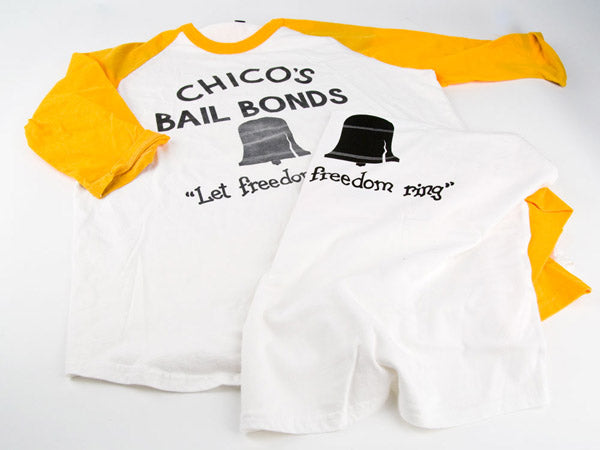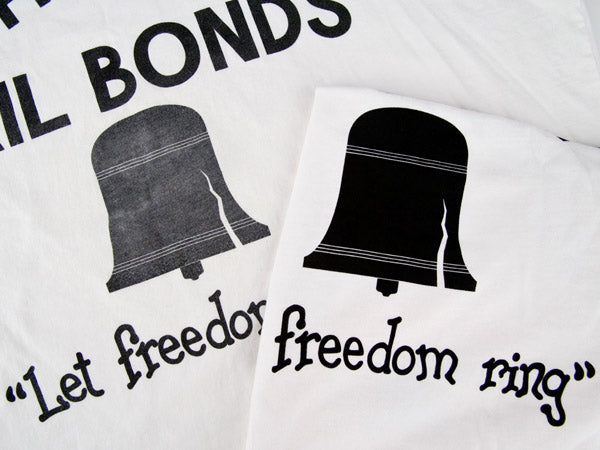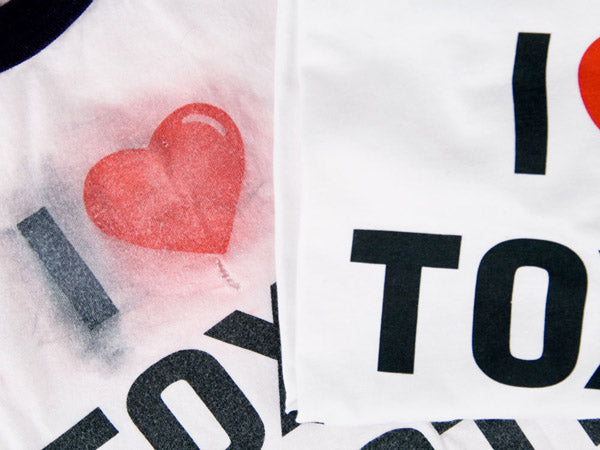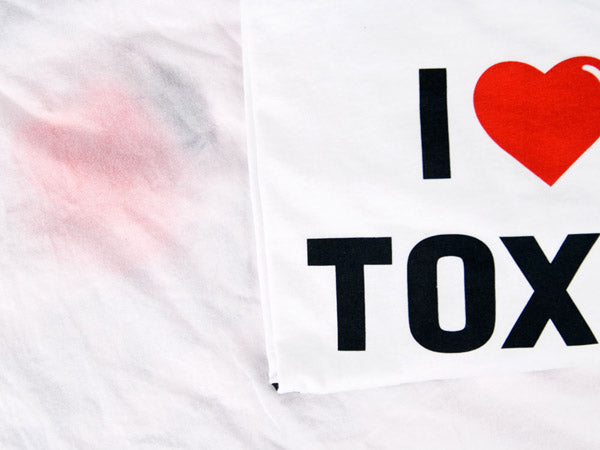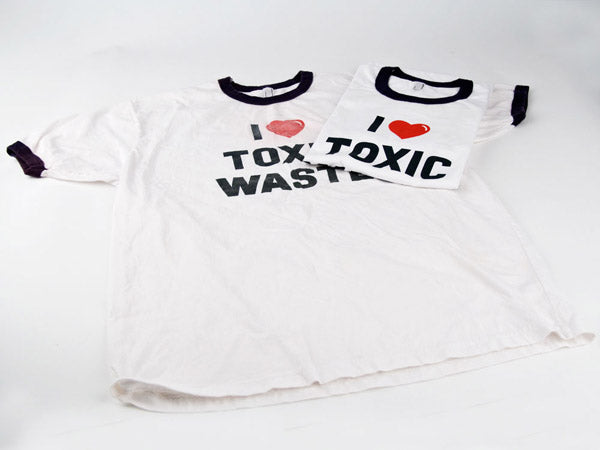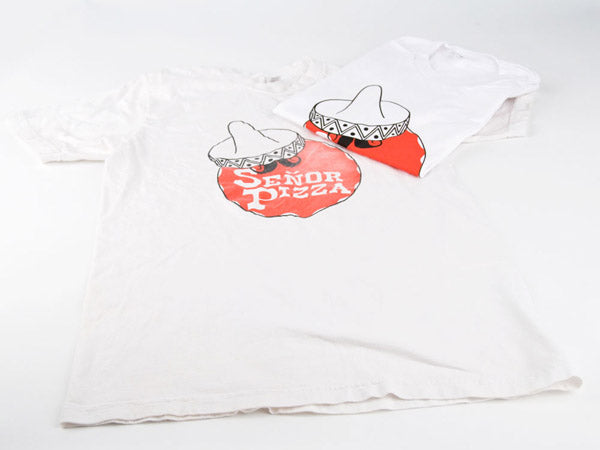Aging T-Shirts In 6 Easy Steps: Acetone (Part 2)

A common paint thinner.
Materials: Acetone, Sponge, Bowl, Measuring Cup(s), Latex Gloves.
Method: 1. Mix 3 gallons of water with 2 cups of acetone.
2. Soak tee for 1 hour.
3. Pull, rinse and wash.
Revised Method: 1. Soak sponge in 3 cups of acetone for 12-48 hours.
2. Apply brushstrokes to common weak points on the garment (shoulder seam, neck hem, underarm); likewise, scrub on and over the actual print. Let the acetone soak into the cotton’s fibers but don’t let it dehydrate entirely.
3. Wash with warm water. Dry on “high” or “hot.”
3. Repeat 3-5 times, or as needed to achieve desired effect.
Results & Conclusions: Our first approach failed (miserably). We saw a small, almost imperceptible degree of color degradation but no change to the print. The water gained a slight, reddish hue, but the Double Duece shirt used as our proverbial Guinea pig was brand newshrink-wrapped deadstock and a degree of discoloration and or discharge is not unusual as a result.

Post-soak, no change to report.
Our second approach had more of the desired effect; after soaking the sponge for 48 hours, we applied it to the bell on our Chico’s tee, scrubbing it up and down for 2-3 minutes and alternating between the soft and abrasive sides.
One application, one wash.
Up close and personal:
One application (left), brand new (right).
You’ll see that the black ink has been muted, especially when compared to the text, which was left untreated, around it.
Note, however, that this technique is not without problems or potential complications.
Would you qualify that as a launch problem or a design problem?
This smearing effect is most pronounced on white blanks. You can prevent it by dabbing the sponge on the print carefully. In such instances, it’s best to let the acetone sit for 30-60 seconds and then brush judiciously. Again, try not to let the acetone dehydrate completely.
A similar problem involved leakage from the front to back. We starting using a cardboard insert to guard against this. We also framed the design in cellophane tape to prevent streaks and keep the discoloration concentrated on the print. This combination yielded a better finished product:
Treated (left), brand new (right). Total applications: 5.
Closer:
Treated (left), brand new (right). Total applications: 5
We has similar success with our Senor Pizza design, localizing our efforts on the patch of red to the right of the sombrero.
Total number of applications: 3
Say cheese:
Total number of applications: 3
Next: Bleach! (Monday, May 9th)

